Top 5 Chad Culture, Customs and Etiquette
A huge and ethnically diverse African nation is Chad. After a colonial history of sixty years that failed to forge a strong sense of national identity, it won ... read more...independence from France in 1960. A number of national cultures that are founded on the ethnoregional and religious affinities of the population groupings can be identified inside the nation's borders. Many of the civilizations have a complicated pre-colonial past that includes rival indigenous republics and sultanates. Here is the lists of Chad Culture, Customs, and Etiquette.
-
Chad is a multicultural country with a fascinating and vibrant culture. There are still around 200 different ethnic groups in the nation, notwithstanding the influence of French colonial control on their modern civilization. They still live and function independently despite numerous attempts to bring them together. Major tribes are divided into groups based on where they reside, with the predominantly Christian Sara people living in the south and Muslim nomadic tribes dominating the north. There are both sedentary and nomadic inhabitants of the Sahel region in central Chad.
The government does not provide much funding for the arts, however there are a few independent galleries in N'Djamena that are supported and maintained by artists. Every ethnic group has an own literary history. There are several books and publications in Arabic, although the majority of the city's writing is in French. There are typically no performing arts, although religious ceremonies are widespread.
Although Chadians are often laid-back and courteous, they do expect visitors to respect their traditions and beliefs. To honor the Muslim laws, attire is casual but conservative. Men and women are rigidly separated in Muslim countries. It is usual to shake hands, and neither accepting nor presenting food should be done with the left hand.
kumakonda.com 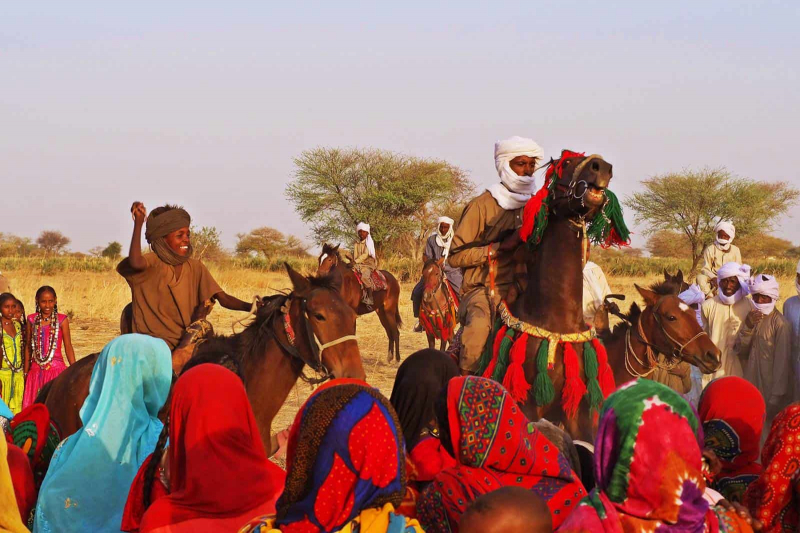
kumakonda.com -
The dining manners in Chad are comparable to those in other Arab and North African nations. That is one of the lists of Chad culture, customs, and etiquette. For details on standard North African and Arab eating etiquette, please visit Egypt dining etiquette and Sudan dining etiquette. The dining manners details provided below include Chadian modifications to standard North African and Arab eating manners.
- Chadian Food and Mealtimes. Boule-pourage. Tan kul in the south (sauce served over fish or meat and beans) or nashif in the north (usually meat plus a spicy tomato sauce).
- Dining etiquette in a Chadian home. Do not intentionally come at mealtime. Honored guests may receive gifts.
- Dining etiquette for seating. Many meals are taken seated on a mat on the floor. Men and women eat separately. Your feet should not point toward other guests or the food. Tuck your feet up.
- Dining etiquette for using your hands. Eat with your right hand.
- Dining etiquette for when to begin eating. Begin eating only after the host indicates that it is okay.
- Dining etiquette taboos. Giving eggs to children will turn them into thieves in adulthood. Don't give pregnant women too much food so that they do not deliver fat babies.
- Dining etiquette compliments. It is a compliment to call someone fat.
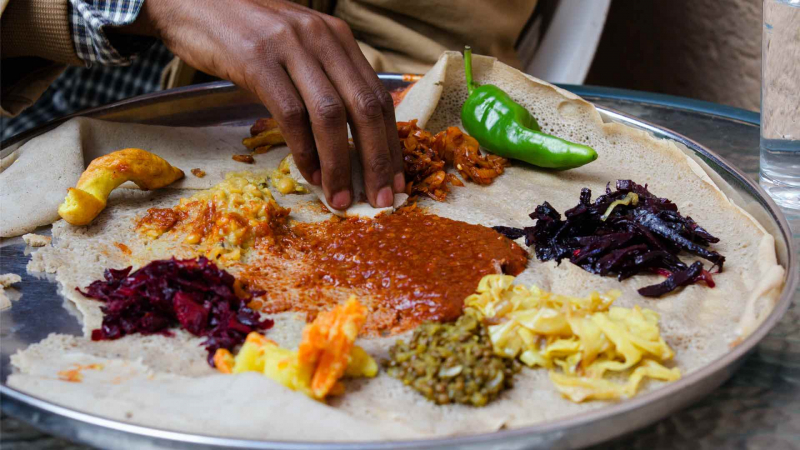
traveltank.com 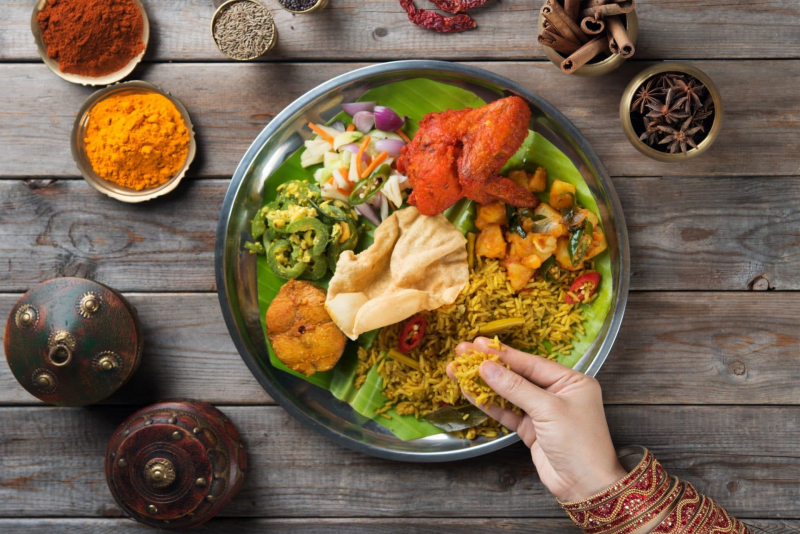
traveltank.com -
The two main religions in Chad are Islam and Christianity. About 30% of people are Christians, who are mainly found in the south and among those with formal education. About half of the population is Muslim, with a concentration in the northern and eastern regions of the country. Another 20 percent, mostly in the south, practice traditional religions, the majority of which are obscure. Traditional local beliefs and cults are significant across the board, frequently in tandem with one's loyalty to the Islamic or Christian faith. Ancestor worship, faith in particular spirits, the use of oracles and divination, and concepts of cosmic equilibrium and fertility are essential. Unlike, say, central or southern Africa, "witchcraft" talk is less common in the Chad.
The communal-religious relationships between Christians and Muslims have always been marked by mutual tolerance and collaboration, notwithstanding the southerners' associations of Islam with slave raids and brutality. In Chad's civil wars, religious animosities didn't matter much at all. The character of Islam in Chad is likewise highly diverse. Islamist "fundamentalist" movements do not have a solid foundation in Chad, though there are a few organizations of this kind. Both Christian and Islamic missionary organizations are active in Chad. Although conversion is a continuous process, using pressure or force is not acceptable. Traditional faiths play a very small part in society compared to Christianity and, particularly, Islam, which are much more prevalent.

usatoday.com 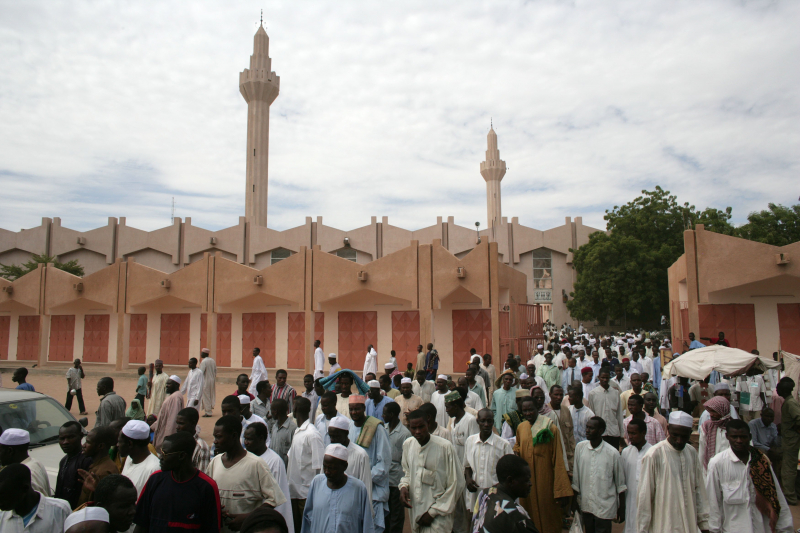
usatoday.com -
Religions have created rituals to communicate with God that transcend political or cultural bounds. Music is fundamental to these ceremonies, both as a means of personal expression and as a representation of the larger cultural, societal, and spiritual communities. It is one of the lists of Chad culture, customs, and etiquette.
- Islamic music
Students in Koranic schools frequently listen to Islamic music as they recite verses from the Koran aloud during religious rites. Religious songs honor the Prophet Muhammad, the founder of Islam, in diverse contexts, such as a marriage or a circumcision. The Sufi brotherhood enjoys popular worship music like the qawwali (a type of Sufi devotional music) and sama (spiritual hearing in Arabic), although these genres are essentially nonexistent in the nation. According to Étienne Damomé, "These songs and dances, inspired by regional melodies influenced by Arabic and eastern European rhythms, improve the ambiance of a Muslim or Christian celebration."
- Catholic worship
The many Christian cults and denominations have always included music in Chad. The largest collection of religious songs is found in Christian music. In Chad, the Catholic Church has maintained its conservatism, and little has altered in the liturgical music other from the addition of instruments to accompany choirs. These same choirs are now leaning toward "global music" in search of fresh musical inspiration.
- Protestant Church
In protestant churches, music is a form of contact between the faithful and their God. The musical selection of worship groups is extremely varied, combining regional sounds like Sa and Dalla with global beats like rumba, world music, slow, gospel, etc. Instruments like the piano, the guitar, and other sound equipment are crucial during worship because they facilitate the faithful's improved prayer and praise of God. The French Institute of Chad gives many ensembles the chance to play on stage each December. And these gatherings have developed into the place where groups from Chad perform R&B, jazz, traditional African music, and American Negro Spirituals.
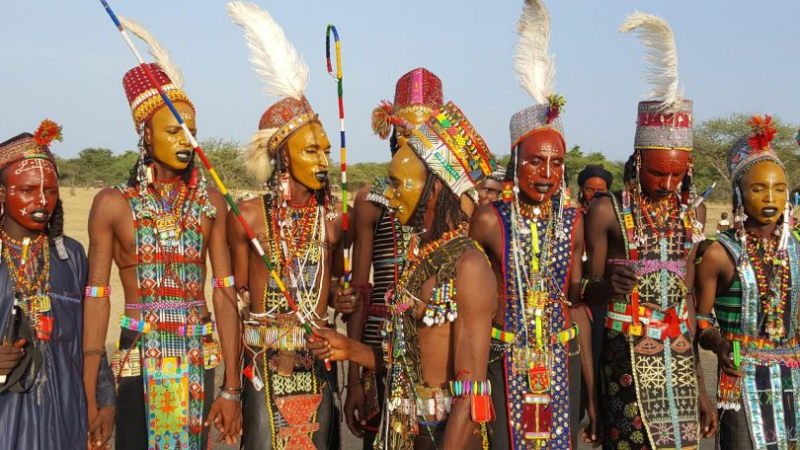
seeafricatoday.com 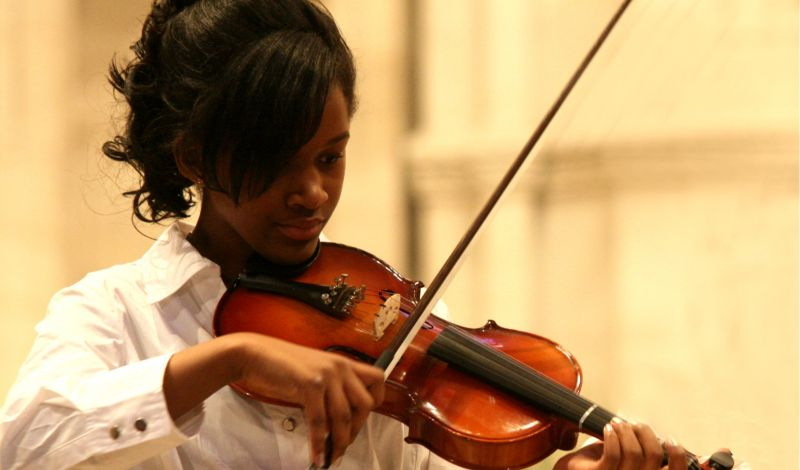
seeafricatoday.com -
The Republic of Chad, or simply Chad, is a country in Central Africa. The Central African Republic is to the south, Sudan to the east, Cameroon and Nigeria to the west, and Libya to the north. It is frequently referred to as "The Dead Heart of Africa" and has a predominantly desert environment.
Chad is home to a variety of religious communities, yet each one is steadfastly committed to upholding traditional Chadian practices. The Taubou, or Daza, are one of the primary groups, and they are nomads. They closely adhere to the tradition of marriage, and their households are made up of a head—typically the husband—a wife, and one or more children. The woman is the one who makes all the important decisions in this community, and all of their legally recognized practices are focused on retribution and compensation.That is one of the lists of Chad culture, customs, and etiquette.
Arabs in Chad make up a sizeable portion of the country's population overall. They value the institution of marriage and maintain close-knit families. If you engage in negotiations with them, be sure to be well-prepared because Arabs were made for trade and are strong negotiators.
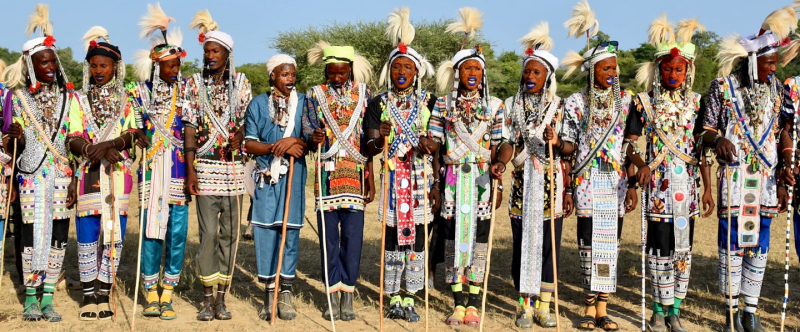
thearabweekly.com 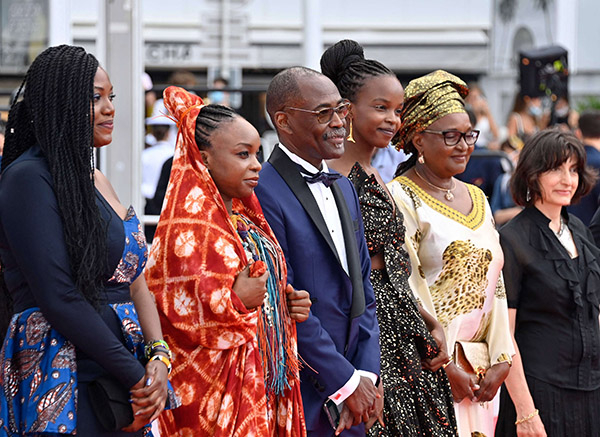
thearabweekly.com


























